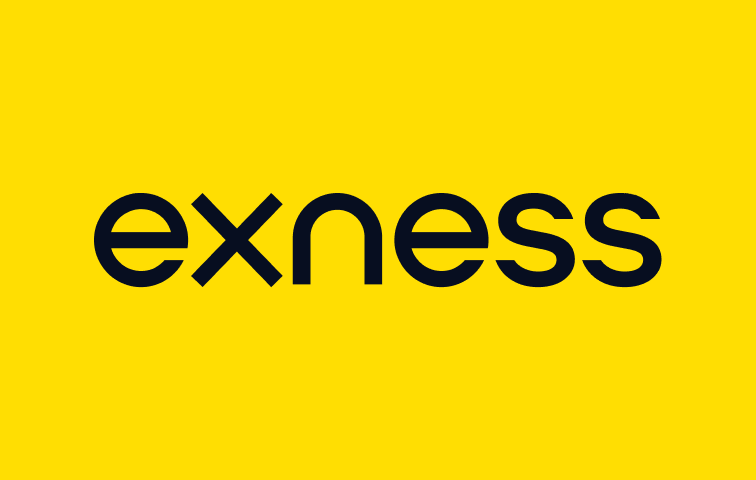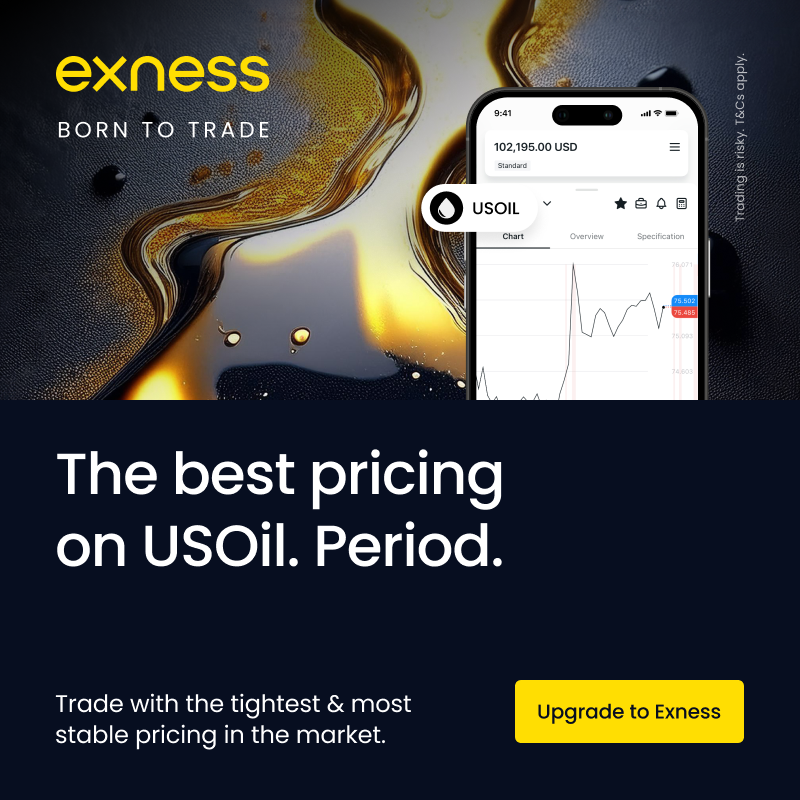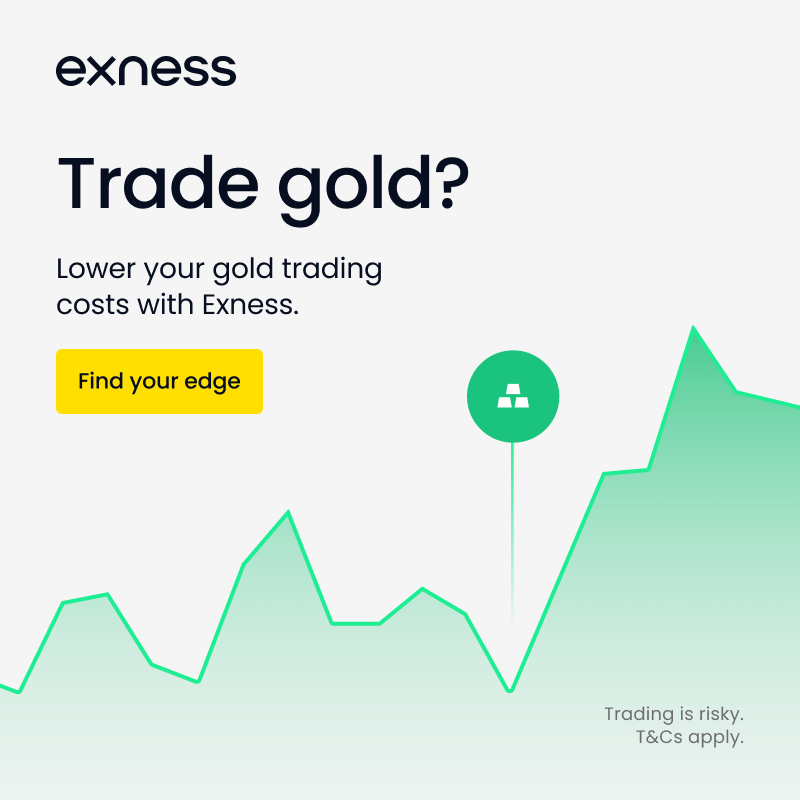
8 minute read
Is Exness Regulated in the Philippines? A Comprehensive Guide
from Exness
by Exness Blog
Forex trading has surged in popularity in the Philippines, with platforms like Exness attracting both novice and seasoned traders. However, a critical question lingers for Filipino traders: Is Exness regulated in the Philippines? This article dives deep into Exness’s regulatory status, its suitability for Filipino traders, and practical tips to trade safely and legally in 2025. By exploring the broker’s credentials, features, and the Philippine regulatory landscape, we aim to provide a clear, trustworthy guide for traders seeking a reliable platform.

✅ Trade with Exness now: Open An Account or Visit Brokers 👈
What Is Exness? A Brief Overview
Exness, founded in 2008 and headquartered in Limassol, Cyprus, is a globally recognized forex and CFD broker. With a monthly trading volume exceeding $4.5 trillion as of September 2023 and over 1 million active clients across 150+ countries, Exness has built a reputation for competitive spreads, high leverage (up to 1:2000), and a wide range of tradable instruments, including forex, commodities, cryptocurrencies, indices, and stocks. Its user-friendly platforms, such as MetaTrader 4 (MT4), MetaTrader 5 (MT5), and the proprietary Exness Terminal, make it a popular choice worldwide, including in the Philippines.
For Filipino traders, Exness offers localized payment methods, multilingual support, and features like social trading, which allows beginners to copy the strategies of experienced traders. But the question remains: Is Exness a legal and safe option for Filipinos? To answer this, we need to examine the regulatory framework in the Philippines and Exness’s compliance with global standards.
The Regulatory Landscape for Forex Trading in the Philippines
Forex trading is legal in the Philippines but operates under a complex regulatory framework overseen by two primary bodies:
Securities and Exchange Commission (SEC): The SEC regulates securities and investment activities, including forex brokers, to ensure transparency, compliance with anti-money laundering (AML) laws, and investor protection.
Bangko Sentral ng Pilipinas (BSP): The BSP oversees foreign exchange transactions and banking operations, aiming to prevent illegal capital outflows and maintain economic stability.
The SEC and BSP impose stringent requirements on financial firms, including licensing, AML compliance, and Know Your Customer (KYC) protocols. However, due to the complexity of the licensing process, few local forex brokers operate in the Philippines. This has led many Filipino traders to turn to international brokers like Exness, raising questions about their legality and safety.
Is Exness Regulated in the Philippines?
The short answer is that Exness is not directly regulated by the Philippine SEC or BSP. Instead, it operates under multiple international licenses from reputable regulatory bodies, including:
Cyprus Securities and Exchange Commission (CySEC): License number 178/12, a Tier-1 regulator known for strict standards (note: CySEC applies to institutional clients only).
Financial Conduct Authority (FCA) in the UK: Registration number 730729, another Tier-1 authority ensuring client fund protection and transparency.
Financial Services Authority (FSA) in Seychelles: License number SD025, under which Exness operates for Filipino clients.
Financial Services Commission (FSC) in Mauritius and the British Virgin Islands (BVI): License numbers GB20025294 and SIBA/L/20/1133, respectively.
Financial Sector Conduct Authority (FSCA) in South Africa: For operations in African jurisdictions.
Capital Markets Authority (CMA) in Kenya and Jordan Securities Commission (JSC): For additional regional compliance.
These licenses ensure that Exness adheres to international financial standards, including segregated client funds, regular audits by Deloitte (a Big Four accounting firm), and robust AML and KYC protocols. While Exness lacks direct SEC or BSP oversight, there is no explicit ban on Filipino traders using international brokers. This places Exness in a regulatory gray area in the Philippines, but it remains a legal option for traders who comply with local laws, such as BSP guidelines on foreign exchange transactions.
Is Exness Safe for Filipino Traders?
Exness’s global regulatory framework provides a strong layer of security, making it a reliable choice for Filipino traders despite the absence of local regulation. Here’s why:
Segregated Client Funds: Exness keeps client funds separate from company funds in Tier-1 banks, reducing the risk of misuse.
Negative Balance Protection: Traders cannot lose more than their deposited funds, protecting beginners from volatile market risks.
Regular Audits by Deloitte: Exness undergoes independent audits every six months, ensuring financial transparency.
Compensation Fund Membership: Exness is part of investor compensation schemes in certain jurisdictions, offering recourse in case of financial disputes.
Advanced Security Measures: Features like two-factor authentication (2FA), 3D Secure for card transactions, and a Web Application Firewall (WAF) protect against fraud and cyber threats.
Exness also maintains transparency by publishing monthly financial reports on trading volume, active clients, and withdrawal amounts. With a 4-star Trustpilot rating based on over 16,000 global reviews, Filipino traders often praise its low spreads, fast execution, and instant withdrawals (95% of transactions). However, some users report occasional delays with bank transfers, which can take up to three days.

✅ Trade with Exness now: Open An Account or Visit Brokers 👈
Benefits of Trading with Exness in the Philippines
Exness offers several advantages that make it appealing for Filipino traders:
Competitive Spreads: Starting at 0.0 pips on certain accounts, with no commissions on Standard accounts.
Flexible Leverage: Up to 1:2000, though beginners should use lower leverage to manage risks.
Diverse Account Types: Options include Standard, Cent (ideal for beginners with a $1 minimum deposit), Raw Spread, Zero, and Pro accounts.
Wide Range of Instruments: Over 100 forex pairs, plus commodities, indices, and cryptocurrencies like Bitcoin and Ethereum.
Localized Features: Support for Philippine bank transfers, debit/credit cards, and multilingual customer service (available 24/7 in English, with limited hours in other languages).
Social Trading Platform: Allows beginners to copy trades from experienced traders, with transparent performance metrics.
Educational Resources: Webinars, video tutorials, market insights, and an economic calendar help traders improve their skills.
Mobile Accessibility: The Exness mobile app and MT4/MT5 platforms offer one-click trading and real-time alerts.
Challenges and Risks
While Exness is a strong contender, there are some limitations:
Lack of Local Regulation: The absence of SEC or BSP oversight may concern traders prioritizing local compliance.
High Leverage Risks: Leverage up to 1:2000 can amplify losses, especially for inexperienced traders.
No Local Office: Exness lacks a physical presence in the Philippines, and customer support may experience delays during peak times.
Limited Educational Content: Compared to competitors, Exness’s educational resources are basic and may not suffice for traders seeking in-depth learning.
Tips for Safe Trading with Exness in the Philippines
To trade safely and legally with Exness, Filipino traders should follow these best practices:
Verify Your Account: Complete the KYC process by submitting identification documents (e.g., passport, driver’s license) and proof of address for smooth deposits and withdrawals.
Start with a Demo Account: Practice strategies risk-free to gain confidence before trading with real money.
Manage Leverage Carefully: Beginners should opt for lower leverage (e.g., 1:50) to minimize losses.
Stay Compliant with Local Laws: Report earnings to the Bureau of Internal Revenue (BIR) to avoid legal issues and adhere to BSP guidelines on foreign exchange transactions.
Monitor Regulatory Updates: Regularly check SEC and BSP advisories to stay informed about changes in forex regulations.
Use Risk Management Tools: Implement stop-loss, take-profit, and proper position sizing to protect your capital.
Research Continuously: Stay updated on market trends and Exness’s policies using its economic calendar and analytical tools.
Alternatives to Exness for Filipino Traders
For traders hesitant about Exness’s lack of local regulation, consider these alternatives:
Local Brokers: Platforms like BDO Nomura or COL Financial comply with Philippine laws but may have higher fees and fewer instruments.
Other International Brokers: Pepperstone and Forex.com, regulated by top-tier authorities like ASIC and CFTC, offer robust alternatives with competitive conditions.
Always verify a broker’s regulatory status and compare features before committing.
Conclusion: Is Exness a Good Choice for Filipino Traders?
Exness is a legal and viable option for Filipino traders in 2025, provided they comply with local laws. While it is not regulated by the Philippine SEC or BSP, its licenses from Tier-1 regulators like CySEC and FCA, combined with robust security measures like segregated funds and Deloitte audits, ensure a high level of safety and transparency. Its competitive spreads, diverse account types, and localized features make it particularly appealing for Filipinos, especially beginners leveraging its social trading platform.
However, traders must exercise caution due to the lack of local oversight and the risks associated with high leverage. By following best practices—such as using demo accounts, managing leverage, and staying compliant with BSP and BIR regulations—Filipino traders can confidently use Exness to explore global financial markets.
For the latest updates on Exness’s services and regulations, visit their official website or consult the SEC and BSP for guidance. With proper knowledge and risk management, Exness can be a reliable partner in your forex trading journey.
✅ Trade with Exness now: Open An Account or Visit Brokers 👈
Read more:

